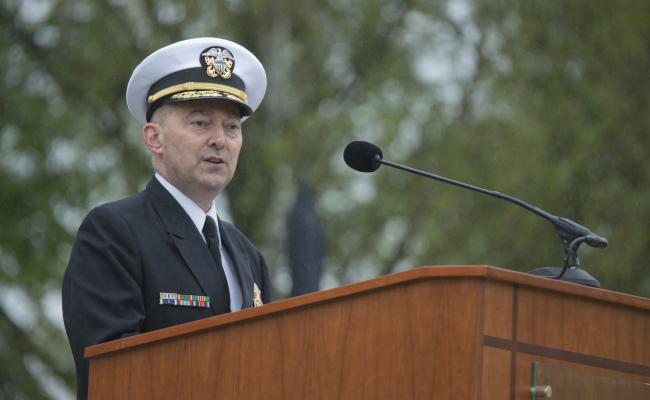Op-ed: The Illusion of the Arctic “Exceptionalism”
The Barents Euro-Arctic Council (Beac) is a forum for intergovernmental cooperation. It consists of the member countries Denmark, Finland, Iceland, Norway, Russia, Sweden and the European Commission. (Photo: Hilde-Gunn Bye).
The opinions expressed here belongs to the author and do not represent the views of High North News.
The Arctic is not an “exceptional” region as it has been thought for a long time. Instead, it is the reflection of the international order. The consequences that the war in Ukraine is having in the Arctic is an excellent example. It is having two important consequences for the Arctic geopolitics.
First, it has halted cooperation between the West and Russia. All official meetings in the Arctic Council, the leading intergovernmental forum guiding cooperation in the region of which Russia has currently the chairmanship until 2023, and in the Barents Euro-Arctic Council, which is the other relevant forum, have been suspended.
Energy companies are forbidden from participating in onshore and offshore projects together with the Russian ones. Scientific cooperation has also been stopped with negative consequences for both the West and Russia because western scientists can’t access the fields where they need to collect data.
They are indeed mainly contained in the Arctic territories of Russia that is the largest country with the longest coasts in the Arctic. At the same time, Russia has not the western technology and knowledge at disposal.
Cooperation with Russia was the main concern of experts and politicians during the Arctic Frontiers, which is the most important yearly gathering of high-level personalities in the Arctic, held from the 8th to the 11th May 2022 in Tromsø, Norway. The war in Ukraine and its impact on the relations between the West and Russia were indeed the dominant topics in the conference.
Experts agreed that the Arctic Council does not make sense without Russia
The uncertainty of the future of the region and how the relations with Russia will develop in the next years were indeed at the center of the discussion. There was consensus on the fact that cooperation with Russia in the region is essential for geopolitical, economic and social reasons.
Additionally, experts agreed that the Arctic Council does not make sense without Russia and that cooperation within this forum has to be continued. The establishment of a new body with only the western Arctic countries as members was considered unthinkable.
Nevertheless, a good question would be how the activities of the Arctic Council will be developed if Finland and Sweden join NATO, meaning that the only non-NATO country in the forum would be Russia.
Second, militarization is the other side-effect of the war in Ukraine in the Arctic. Actually, militarization began already in 2014, when Russia annexed Crimea.
However, the current war has deteriorated the relations between the West and Russia even more leading the Arctic countries to abandon the “low tension area” image that the world had had of the Arctic since the end of the Cold War when ex Russian President Mikhail Gorbachev gave a speech in Murmansk in 1987.
The Arctic countries are increasing their military presence in the region
It was the beginning of a new era in which the Arctic became a ‘pole of peace’ and the level of the military confrontation between the East and the West had been lowered favouring cooperation between them. Unfortunately, that period has come to an end and a new Cold War has begun. The military interest of countries in the Arctic has enormously grown since 2014.
The Arctic countries are increasing their military presence in the region, which is the shortest distance between the two historical enemies, the United States and Russia. This latter has re-occupied some of the military bases of the Cold War and the western countries are also following the example. Additionally, NATO is making military exercises in the region.
An example is the Cold Response 2022 that has brought together troops from NATO Allies and partners with the aim to test their ability to work in the harsh conditions of the Arctic.
Therefore, tensions in the region are growing. The “exceptionalism” of the Arctic (which was questioned in the Arctic Frontiers conference) was just an illusion.


